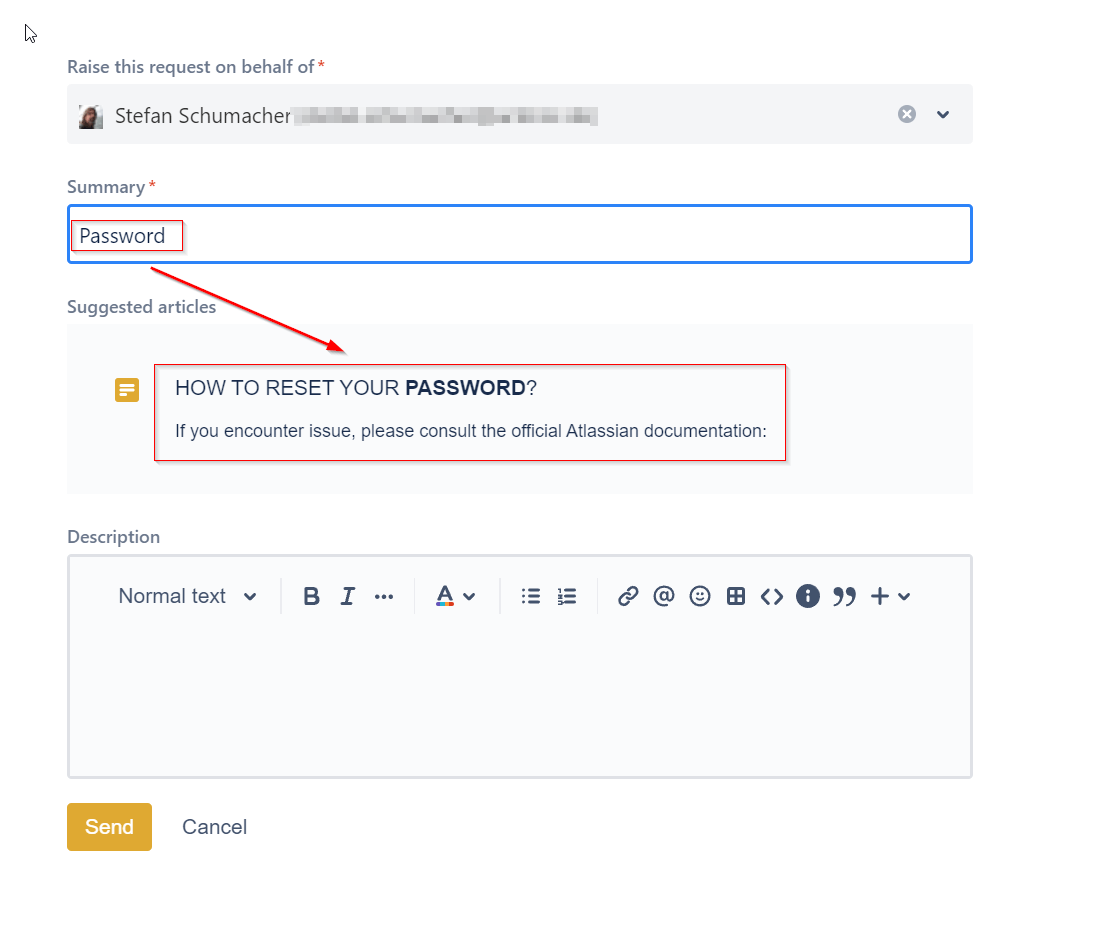Tips for the Knowledge Base (Self-Service) in JSM
In today’s fast-paced world, efficient collaboration between support teams and customers is vital for a successful service project. A well-organized Knowledge Base plays a crucial role in facilitating effective communication and information exchange between different parties.
What is a Knowledge Base?
A Knowledge Base is a central repository where valuable information about processes, best practices, and solution aids within the context of the service project is captured and organized. It serves as a central solution for storing and retrieving essential project-related data.
Utilize Self-Help Features
A JSM trend that can benefit significantly from effective support through a Knowledge Base is the shift towards self-help features. A groundbreaking advantage is that customers can be offered the opportunity to resolve some issues outside of service hours – 24/7, ideally even before opening a ticket in the service desk.
The idea that a well-developed process with a Knowledge Base can save service desk personnel is flawed, as the articles need constant review and updating. If there are too few service staff, the quality of self-help functions will inevitably decline.
JSM Knowledge Base
In Jira Service Management, there are two forms of search: direct and indirect. Let’s look at the indirect search: when you start filling out a request in a customer portal, JSM will initiate a background search based on the information entered in the summary field. Subsequently, JSM will show you the exact articles that match your request. If the appropriate article can be offered at this point, it will no longer be necessary for your customers to fill in further fields, and you have successfully “deflected” a service ticket.
